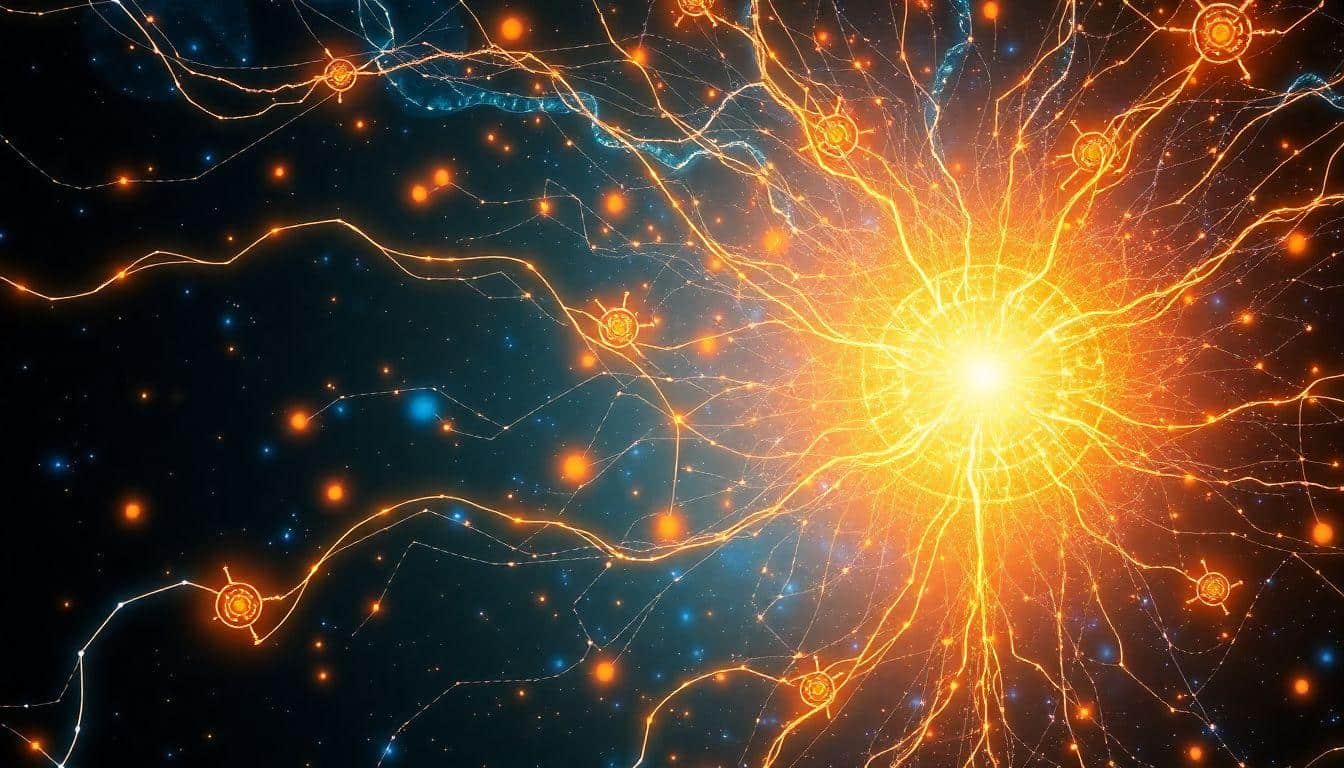Intuition is often dismissed as a mere gut feeling, but there’s a profound science behind it that deserves exploration. In a world increasingly driven by data and logic, the role of intuition, especially in the context of intuitive readings, stands as a fascinating borderland between the known and the unknown. Skeptics may scoff, but intuition is a vital part of the human experience a compass that guides us when logic falls short. This article delves into the science behind intuitive readings and how energy influences insight, challenging the skeptics and enlightening the believers.
Understanding Intuitive Readings
Explore how energy shapes intuitive insights and learn to trust your own intuition effectively. – What is intuition? Intuition is a natural ability to understand or know something without the need for conscious reasoning, often described as a ‘gut feeling.’ – How does intuition work? It operates through a combination of emotional, physical, mental, spiritual, and creative insights, influenced by energy patterns around us. – Is intuition a sixth sense? While often considered an additional sense, it is more accurately a deep awareness that integrates various types of knowledge and experiences.
What Is Intuition? 5 Types and How to Trust Yours
What is intuition?
Intuition is an elusive concept, often described as knowing without knowing why. It’s that inner voice that nudges you in a certain direction, often against the grain of logic. For centuries, intuition has been the subject of philosophical debate and scientific inquiry. Sigmund Freud referred to it as our “unconscious mind,” while Carl Jung considered it one of the primary ways we perceive the world.
In essence, intuition is the brain’s ability to process complex patterns swiftly and subconsciously. It’s a form of fast thinking that draws from accumulated experiences and knowledge stored in our subconscious. Imagine standing at a crossroads, and without a second thought, you choose a path. This decision, made almost instantaneously, is intuition at work. Despite being inexplicable at times, intuition is grounded in the vast network of neuronal connections within our brains, continuously processing information even when we aren’t consciously aware of it.
How does intuition work?
Intuition operates through a complex interplay of neural processes, often bypassing the logical, analytical part of the brain. Neuroscience has shown that the brain is capable of processing vast amounts of information at an unconscious level, leading to those sudden insights or gut feelings. Studies involving brain imaging reveal that intuitive decisions activate a network involving the insula, the anterior cingulate cortex, and the basal ganglia, areas associated with emotion and reward processing.
These subconscious processes are what allow a seasoned firefighter to sense danger before seeing flames, or a chess grand-master to foresee a winning move without analyzing every possibility. It’s a remarkable ability that combines both emotion and experience. One could liken it to a mental shortcut, born from years of accumulated knowledge and life experiences, allowing us to respond quickly and effectively in critical situations.

Is intuition a sixth sense?
The idea of intuition as a sixth sense might seem like a stretch, but there’s some merit to the analogy. While not a sensory perception in the traditional sense, intuition is indeed a heightened awareness that transcends the five senses. It’s a unique form of intelligence that allows for perception beyond the tangible.
Intuition could be considered a synthesis of sensory input and subconscious processing, providing insights that are as real as any received from sight, sound, or touch. It’s this intangible yet powerful ability that forms the basis of intuitive readings, where practitioners tap into their intuitive faculties to glean insights that are not immediately apparent through conventional means.
What are the types of intuition?
Understanding the types of intuition can help us harness its power more effectively. Intuition is not a monolithic entity; instead, it comes in various forms, each influencing different aspects of our lives.
1. Emotional
Emotional intuition is the ability to read and understand others’ emotions and intentions without verbal communication. It’s akin to emotional intelligence, allowing individuals to navigate social situations with an almost uncanny understanding of what others are feeling. In a personal anecdote, I recall a time when a friend was going through a tough period. Despite their brave face, my intuition picked up on their distress, leading me to offer support they hadn’t verbally requested. Its these moments of emotional attunement that demonstrate the profound impact of emotional intuition.
2. Physical
Physical intuition involves an awareness of our bodily sensations, often manifesting as a ‘gut feeling.’ It’s the body’s way of communicating with us, sending signals that we need to pay attention to. Athletes often rely on physical intuition to perform at their peak, trusting their bodies to respond in ways that conscious thought cannot dictate. This type of intuition is not just about recognizing physical cues but also about understanding what these signals mean for our overall well-being.
3. Mental
Mental intuition is the ability to understand complex concepts or solve problems seemingly without effort. It’s the sudden clarity or the ‘aha’ moment that comes when you finally grasp an elusive idea. This form of intuition is critical in creative and academic pursuits, allowing individuals to make connections and insights that might not be immediately apparent. As a writer, I’ve experienced mental intuition during moments of creative flow when ideas and words come together seamlessly without conscious thought.
4. Spiritual
Spiritual intuition connects us with the metaphysical realm, offering insights that transcend the physical world. This type of intuition is often associated with spiritual practices and beliefs, where individuals feel guided by a higher power or inner wisdom. Spiritual intuition can be a profound source of comfort and direction, helping individuals navigate life’s uncertainties.
5. Creative
Creative intuition is the ability to generate innovative ideas and solutions, often without a logical basis. It’s the spark of inspiration that artists, writers, and inventors rely on to create something new and original. This form of intuition is essential in the creative process, allowing individuals to tap into the wellspring of imagination and bring forth ideas that defy conventional thinking.
How to trust your intuition
Trusting your intuition requires practice and self-awareness. It’s easy to dismiss intuitive insights as irrational or unfounded, but doing so can lead us to ignore valuable guidance. The first step in trusting your intuition is to pay attention to those ‘gut feelings’ and inner nudges. Acknowledge them without judgment and observe the outcomes when you follow them.
Developing a mindfulness practice can also enhance your ability to trust your intuition. By becoming more attuned to your thoughts and emotions, you’ll be better equipped to recognize intuitive insights as they arise. Meditation, journaling, and spending time in nature can help clear the mental clutter and create space for your intuition to emerge.
Additionally, reflecting on past experiences where intuition has guided you successfully can reinforce your trust in this inner wisdom. Consider keeping a journal to document instances where intuition played a role in your decision-making process. Over time, you’ll begin to see patterns and build confidence in your intuitive abilities.
Insider Tip: “Intuition is a muscle; the more you use it, the stronger it becomes. Start small by trusting your intuition in everyday decisions, and gradually, you’ll gain the confidence to rely on it in more significant matters.” Dr. Laura Sinclair, Intuition Development Coach.
My Journey to Trusting My Intuition
Reflecting on my personal journey, I remember a pivotal moment that helped me understand the power of intuition, particularly its emotional type. It was a rainy afternoon in November when I received a call from an old friend, Sarah, who I hadn’t spoken to in years. Something in my gut urged me to answer, despite my busy schedule.
As we talked, I felt an overwhelming sense of urgency about her tone. She shared that she was going through a tough time, struggling with her mental health and feeling isolated. In that moment, my intuition kicked in strongly, and I sensed she needed more than just a friendly chat; she needed support.
Despite my initial hesitations, I decided to visit her the following weekend. That decision proved to be life-changing for both of us. During my visit, we spent hours talking, laughing, and reminiscing, but more importantly, I was able to guide her towards seeking professional help.
Looking back, I realize that trusting my intuition not only strengthened our friendship but also provided Sarah with the support she desperately needed. This experience taught me that emotional intuition is not just a feeling; it can lead to meaningful actions that profoundly impact our lives and the lives of those around us. Trusting that inner voice has since become a guiding principle in my life, reminding me of the importance of listening to my instincts.
The bottom line
The science behind intuitive readings and energy’s influence on insight is a testament to the complexity and wonder of the human mind. While intuition may seem mystical, it’s deeply rooted in our brain’s ability to process information swiftly and subconsciously. Understanding and trusting this powerful faculty can open doors to insights and guidance that logic alone cannot provide.
By recognizing the various types of intuition and learning to trust our inner wisdom, we can enhance our decision-making and navigate life’s complexities with greater ease. Whether you’re a skeptic or a believer, there’s no denying the impact of intuition on our lives, offering a unique blend of science and spirituality that continues to captivate our curiosity.
For those interested in exploring intuitive readings further, consider visiting our intuitive reading service to discover how these practices can reveal hidden insights and guide you on your journey.
Ultimately, embracing the science behind intuitive readings and the role of energy in influencing insight invites us to expand our understanding of human perception and potential. As we continue to explore this fascinating intersection of mind and spirit, may we all learn to trust our intuition and the wisdom it holds.



